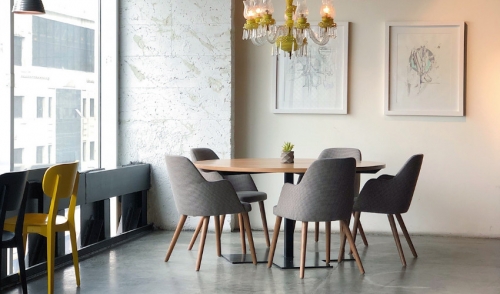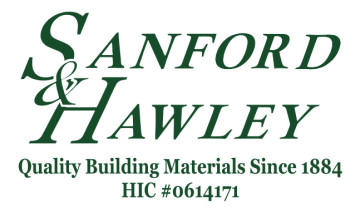
Four Ways to Use Concrete in Kitchens
No matter how you choose to incorporate it, concrete makes a statement.
Of all the rooms in a home, the kitchen is where home buyers place the highest priority in terms of functionality, streamlined design, and where they are most likely to choose top-of-the line materials. According a recent Realtor.com report, homes that include a "killer kitchen” sell 8% faster than similar-sized homes in the same area.
Because the kitchen has emerged as a key player in home sales, it offers a distinct opportunity for builders to stand out from the competition by replacing conventional materials—such as granite, marble, or tile—with decorative concrete. In addition to its natural virtues of durability, sustainability, and ease of maintenance, concrete has no limitations in color or shape, allowing you to create custom, anything-but-cookie-cutter kitchen designs. It works in nearly any room, providing both a utilitarian level of functionality as well as a stylistic touch.
1. Concrete Countertops
Using concrete to build kitchen countertops and islands provides infinite design options. You can vary the shape and thickness, create long seamless runs and form custom edge details. While all countertop materials have a wide array of color options, concrete gives you the ability to completely customize the color using integral pigments and stains. Or, you can simply leave the concrete its natural gray color for an organic, unadulterated look.
The price of concrete countertops varies depending on the degree of customization, but they can often cost less than a granite or marble countertop while providing the same high-end look. Although concrete is inherently porous, protecting countertop surfaces with a low-VOC water-based sealer will make them stain resistant and easy to clean without affecting the indoor air quality.
Design tip: Make your concrete countertops more distinctive and aesthetically appealing by using decorative embeds, such as pieces of recycled colored glass, crushed mirror glass, and semi-precious stone.
2. Concrete Sinks
Only concrete provides the ability to cast a sink integral with the countertop, creating a unified, seamless look. Premanufactured sink molds are available in a variety of shapes and styles, including ovals, rectangles, trough sinks, farmhouse sinks and more. Countertop makers also use materials such as Plexiglas, polystyrene foam, and urethane rubber to create custom sink molds in nearly any shape and size.
Design tip: To add more style and functionality, consider casting grooves in the countertop that slope down toward the sink to create an integral drain board.
3. Concrete Backsplashes
Concrete backsplashes are the perfect complement to concrete countertops and sinks, especially if you want to create a cohesive look and match the countertop. But you don’t have to stop there. To add decorative interest, cast the backsplash using different colors, designs, shapes and custom inlays. Other design options include hand-carved overlays that mimic tile and unusual free-form shapes. Concrete backsplashes are also ideal for remodeling projects because they mix well with existing countertop materials, such as tile or granite, and are easy to retrofit.
Design Tip: If your design plans call for a conventional tile backsplash, incorporate the same tiles into a concrete countertop by using them along the edges or as decorative embeds in the surface.
4. Concrete Floors
There’s a good reason concrete floors are often used in commercial kitchens: They are seamless, incredibly durable, and easily stand up to constant foot traffic, food and drink spills, and dropped cutlery. They also resist food and oil stains, water, and abrasion when properly sealed. In residential kitchens, concrete floors offer the same benefits, and can be finished in a variety of colors and decorative patterns. For a more traditional look, you can even stain and lightly texture them to resemble natural stone or wood.
Design Tip: Another popular option for kitchen floors is polished concrete. It requires no sealer, it's easy to maintain, and provides a bright, mirror-like finish.
